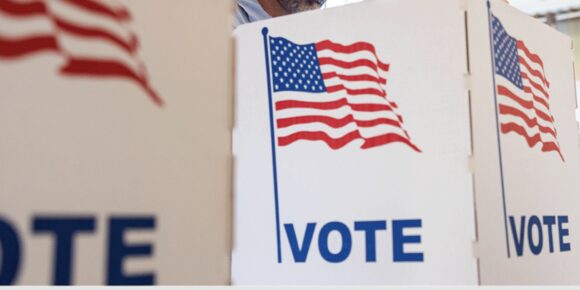The U.S. Presidential Election is more than just a domestic political event—its impact stretches far beyond American borders, influencing global markets, currencies, and international trade. As the 2024 election approaches, businesses must prepare for the economic uncertainty and volatility that often accompany political transitions. Understanding the potential outcomes of the election and their effects on U.S. fiscal, monetary, and trade policies is critical for navigating the fluctuations in currency markets, especially with respect to the U.S. dollar.
The strength of the U.S. dollar plays a pivotal role in global finance. It is the world’s reserve currency, central to international trade, investment, and commodity pricing. As the election results unfold, shifts in U.S. policies can affect the dollar’s position in the global economy, impacting everything from trade relations to inflation rates and international business operations. In this post, we explore the key scenarios for the 2024 election and provide strategies for businesses to mitigate currency risks in the face of potential volatility.
The 2024 Election in Context: Economic Pressures and Global Dynamics
The upcoming U.S. election comes at a time of significant economic uncertainty, driven by several key factors:
- Inflation and Interest Rates: Persisting inflation since 2021 has led the Federal Reserve to increase interest rates. Changes in interest rates are a major driver of currency value, particularly that of the U.S. dollar.
- Global Trade and Geopolitical Tensions: Trade disputes, particularly with China, and ongoing geopolitical tensions, such as sanctions on Russia and complex EU relations, continue to shape currency movements. These issues are likely to affect U.S. trade policies and the value of the dollar.
- Fiscal Policy and Debt: Rising U.S. government debt and potential fiscal changes post-election will influence investor confidence. The dollar’s value is closely tied to the nation’s fiscal health, with significant debt burdens potentially leading to downward pressure on the currency.
Potential Election Scenarios and Their Impact on Currency Markets
The 2024 election could unfold along two primary policy pathways: continuity and international cooperation or deregulation and protectionism. Each direction would have distinct consequences for the dollar’s strength and global position.
Scenario 1: Continuity and Multilateralism
If the election results in a continuation of current policies, businesses may experience a more stable economic environment. This scenario would likely involve sustained international cooperation, stable trade agreements, and predictable fiscal and monetary policies. In such a scenario, the U.S. dollar’s strength would be influenced more by macroeconomic factors like inflation and interest rates rather than sharp policy changes. Currency markets would likely experience reduced volatility, which could reassure businesses engaged in international trade.
Scenario 2: Deregulation and Protectionism
If the election leads to a shift toward more protectionist policies, including trade tariffs and deregulation, businesses may see heightened volatility in the currency markets. Protectionist policies, particularly those affecting trade relations with China or Europe, could disrupt global supply chains and lead to significant fluctuations in currency values. While initial corporate tax cuts could strengthen the dollar by spurring domestic investment, long-term impacts, including higher deficits and inflation risks, might weaken the currency. Companies would need to closely monitor these risks and adjust their strategies accordingly to avoid currency-driven losses.
Key Currency Market Considerations for 2024
As the election approaches, businesses should stay attuned to the potential movements of the U.S. dollar and take steps to manage currency risks effectively. Here are some key considerations:
1. Monitoring the Dollar’s Trajectory
Given the dollar’s dominant role in global trade, businesses must keep an eye on economic indicators such as interest rates, inflation, and GDP growth, all of which influence the dollar’s value. Any election-related uncertainty will likely contribute to short-term currency fluctuations, particularly against major currencies like the euro, yen, and yuan. Businesses should assess their exposure to currency risk and remain proactive in managing it by adjusting financial strategies or utilizing hedging tools.
2. Hedging Currency Risk
To shield against the potential volatility stemming from the election results, businesses should refine their currency hedging strategies. Instruments like forward contracts, options contracts, and currency swaps are essential tools for protecting against unfavorable exchange rate movements:
- Forward Contracts: These contracts allow businesses to lock in exchange rates for future transactions, offering protection against adverse shifts in currency values.
- Options Contracts: Currency options give businesses the flexibility to hedge downside risks while maintaining the opportunity to benefit from favorable movements.
- Diversification: Spreading revenue streams across multiple currencies or regions can serve as a natural hedge, reducing reliance on a single currency and mitigating currency risk.
3. Diversifying Supply Chains and Markets
Trade policy changes stemming from the election could lead to new tariffs or barriers, especially for businesses reliant on specific countries. Diversifying supply chains and exploring alternative markets can reduce exposure to currency and policy risks. For instance, companies with strong ties to China or Europe may look to expand operations in emerging markets like Southeast Asia, Latin America, or Africa, where the risks tied to U.S. trade policy may be less pronounced.
4. Staying Informed on Global Economic Developments
While the U.S. election is a key event, global economic conditions will also play a significant role in shaping currency markets in 2024. Developments such as the ongoing conflict in Ukraine, energy market fluctuations, and economic shifts in major regions like Europe and China will influence currency rates. Businesses must stay informed and adjust their currency risk management strategies in response to these evolving conditions.
Historical Impacts of U.S. Elections on the Dollar
Historically, U.S. elections have often led to substantial movements in the dollar’s value, driven by shifts in economic policy, fiscal priorities, and trade relations. Notable examples include:
- 2008 Election: During the financial crisis, Barack Obama’s victory led to initial weakness in the dollar, as markets anticipated increased government spending and higher debt. However, by early 2009, clearer policy directions helped stabilize the dollar.
- 2016 Election: Donald Trump’s victory resulted in a strengthening of the dollar, fueled by expectations of tax cuts and deregulation. Despite initial uncertainty, the prospect of higher inflation and interest rates led to stronger demand for U.S. assets.
- 2020 Election: Joe Biden’s win initially weakened the dollar, driven by expectations of expanded fiscal stimulus. However, as Biden’s economic recovery plans took shape, the dollar began to recover.
Manage Risk and Expectation
The 2024 U.S. election will be a critical event for businesses with international operations, as the election outcome will shape U.S. economic, fiscal, and trade policies with far-reaching implications for the global economy. By carefully monitoring potential election outcomes, adopting effective hedging strategies, and diversifying supply chains, businesses can better manage the risks associated with currency fluctuations. With expert insights and data-driven strategies, businesses can navigate the uncertainty and position themselves for success in a volatile global marketplace.




